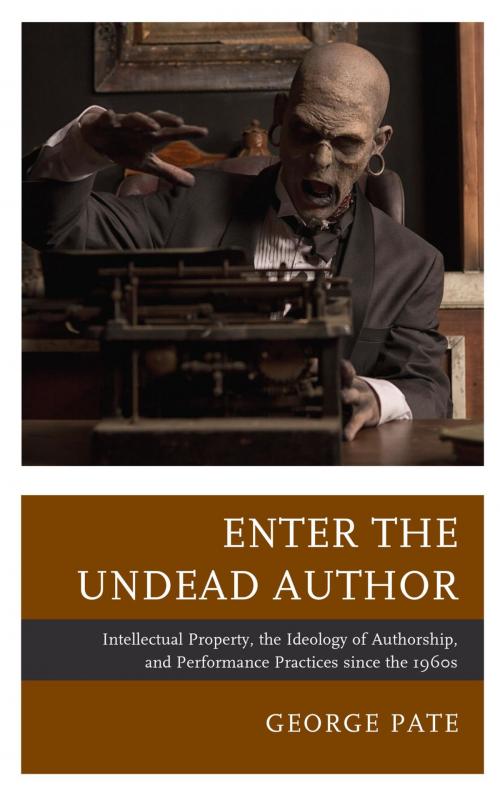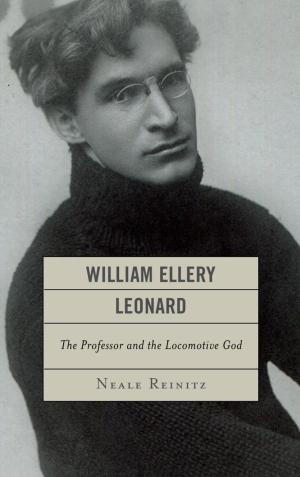Enter the Undead Author
Intellectual Property, the Ideology of Authorship, and Performance Practices since the 1960s
Nonfiction, Reference & Language, Law, Patent, Trademark, & Copyright, Fiction & Literature, Literary Theory & Criticism, Drama History & Criticism, Entertainment, Theatre, Playwriting| Author: | George Pate | ISBN: | 9781683931591 |
| Publisher: | Fairleigh Dickinson University Press | Publication: | March 13, 2019 |
| Imprint: | Fairleigh Dickinson University Press | Language: | English |
| Author: | George Pate |
| ISBN: | 9781683931591 |
| Publisher: | Fairleigh Dickinson University Press |
| Publication: | March 13, 2019 |
| Imprint: | Fairleigh Dickinson University Press |
| Language: | English |
Many narratives of theater history suggest that the 1960s marked the start of a turning away from traditional, script-based, playwright-centric production practices. Literary studies in this period began exploring the concept of the “death of the author” along similar lines. But the author refused to die quietly, and authorship reasserts itself in even revolutionary and avant-garde theaters throughout the latter half of the twentieth century. The model of authorship—valorizing individuality, ownership, and originality—serves to maintain traditional modes of production that reproduce and uphold dominant ideologies even when the products created by those modes of production claim to buck tradition or run counter to cultural currents. This ideology of authorship plays a part in playwrights shutting down productions of their own plays, in the privileging of individual authorship over joint authorship even in collaborative genres, and in the insistence on originality even in performance traditions rooted in a shared repertoire. This tension between the theoretical death of the author and the growth of actual authors’ abilities to control access to and even in some cases interpretations of their work exposes the deftness with which dominant ideologies and their attendant modes of production can repurpose the aesthetics of even countercultural or revolutionary movements in theater.
Many narratives of theater history suggest that the 1960s marked the start of a turning away from traditional, script-based, playwright-centric production practices. Literary studies in this period began exploring the concept of the “death of the author” along similar lines. But the author refused to die quietly, and authorship reasserts itself in even revolutionary and avant-garde theaters throughout the latter half of the twentieth century. The model of authorship—valorizing individuality, ownership, and originality—serves to maintain traditional modes of production that reproduce and uphold dominant ideologies even when the products created by those modes of production claim to buck tradition or run counter to cultural currents. This ideology of authorship plays a part in playwrights shutting down productions of their own plays, in the privileging of individual authorship over joint authorship even in collaborative genres, and in the insistence on originality even in performance traditions rooted in a shared repertoire. This tension between the theoretical death of the author and the growth of actual authors’ abilities to control access to and even in some cases interpretations of their work exposes the deftness with which dominant ideologies and their attendant modes of production can repurpose the aesthetics of even countercultural or revolutionary movements in theater.















